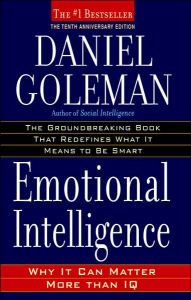Join getAbstract to access the summary!

Join getAbstract to access the summary!
Daniel Goleman
Emotional Intelligence
Why It Can Matter More Than IQ
Bantam, 2006
What's inside?
Your IQ is only 20% of your success. Emotions play a much bigger role. How do you feel about that?
Recommendation
In this seminal work, Daniel Goleman introduced millions of readers to the concept of emotional intelligence - the amalgamation of psychological skills and traits that he claims is crucial for life success. Skills like self-awareness and self-motivation are instilled (or destroyed) in childhood, but Goleman claims that adults still can learn and apply them. This book is at its best when Goleman makes his overall case for emotional intelligence, including its sound biological underpinning. Although the later sections on real-world applications are not as insightful as the earlier sections, getAbstract strongly recommends this important book, which is relevant not only to business, but to life itself.
Summary
About the Author
Daniel Goleman, Ph.D., covers the behavioral sciences for the New York Times. He taught at Harvard and was formerly editor of Psychology Today. His other books include: Social Intelligence: The New Science of Human Relationships, Working with Emotional Intelligence and The Meditative Mind. He is the co-author of The Creative Spirit.































Comment on this summary